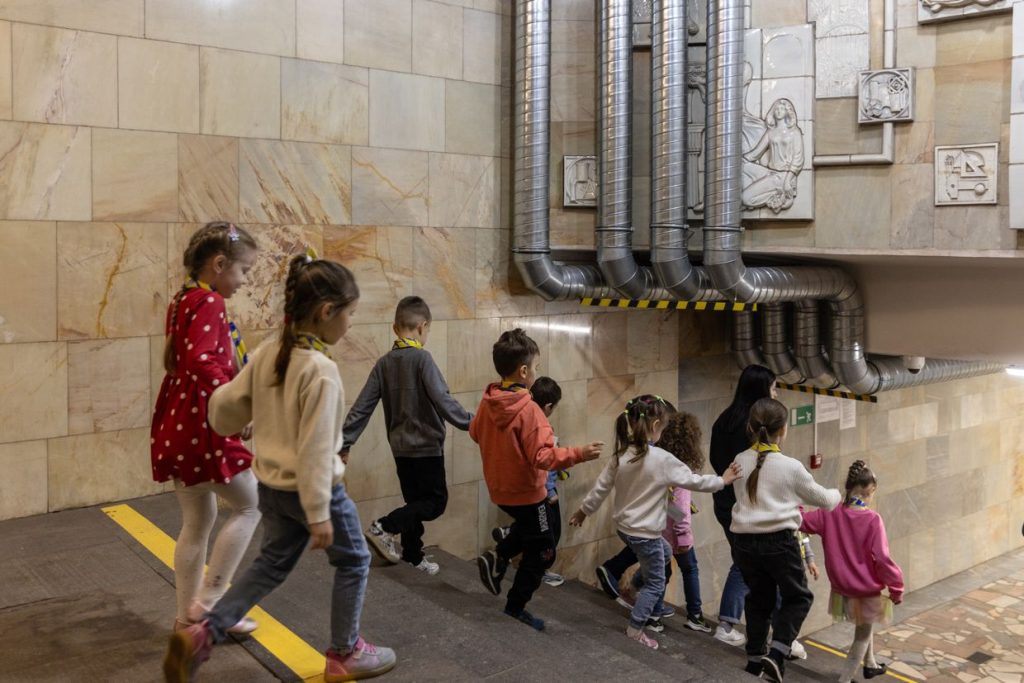Summarize this content to 2000 words in 6 paragraphs
The U.S. State Department announced on March 27 that it would provide short-term funding to an initiative documenting Ukrainian children abducted by Russia after White House terminated the program, Reuters reported.The program, run by Yale University’s Humanitarian Research Lab under the State Department’s Conflict Observatory, used biometric data and satellite imagery to track Russia’s abduction of Ukrainian children. At least 19,500 Ukrainian children have been confirmed as abducted by Russia since the start of its full-scale invasion, with only about 1,200 returned, according to Ukraine’s Children of War database. Yale’s research — funded by the U.S. government — has helped track thousands of these cases.Researchers reportedly lost access to the database last month after officials terminated the contract, cutting off critical evidence for war crimes investigations.A State Department spokesperson said the short-term funding would allow program implementers to ensure that essential data on abducted children is properly transferred to the relevant authorities. “It is part of the standard close-out procedures for terminated programs,” the spokesperson said.The comments come amid U.S. President Donald Trump administration’s efforts to cut various agencies and initiatives, including foreign aid, calling it “waste, fraud, and abuse.” The multiple cuts to foreign funding have begun to affect international efforts to hold Russia accountable, including for war crimes committed in Ukraine.The International Criminal Court (ICC) issued an arrest warrant for Russian Presidential Commissioner for Children’s Rights Maria Lvova-Belova and Russian President Vladimir Putin on March 17, 2023, for the deportation of Ukrainian children.As part of ongoing U.S.-Russia negotiations, U.S. National Security Adviser Mike Walz said that returning kidnapped Ukrainian children is among several “confidence-building measures” being discussed. Ukrainian officials have named their return as a key condition for any future peace agreement with Russia.
!function (f, b, e, v, n, t, s) {
if (f.fbq) return; n = f.fbq = function () {
n.callMethod ?
n.callMethod.apply(n, arguments) : n.queue.push(arguments)
};
if (!f._fbq) f._fbq = n; n.push = n; n.loaded = !0; n.version = ‘2.0’;
n.queue = []; t = b.createElement(e); t.async = !0;
t.src = v; s = b.getElementsByTagName(e)[0];
s.parentNode.insertBefore(t, s)
}(window, document, ‘script’,
‘https://connect.facebook.net/en_US/fbevents.js’);
fbq(‘init’, ‘3189560391356472’);
fbq(‘track’, ‘PageView’);
window.fbAsyncInit = function () {
FB.init({
appId: 271541601613017,
cookie: true,
xfbml: true,
version: ‘v2.5’
});
}.bind(this);
(function (d, s, id) {
let js, fjs = d.getElementsByTagName(s)[0];
if (d.getElementById(id)) return;
js = d.createElement(s);
js.id = id;
// @ts-ignore
js.src = “https://connect.facebook.net/en_US/sdk.js”;
// @ts-ignore
fjs.parentNode.insertBefore(js, fjs);
}(document, ‘script’, ‘facebook-jssdk’));


